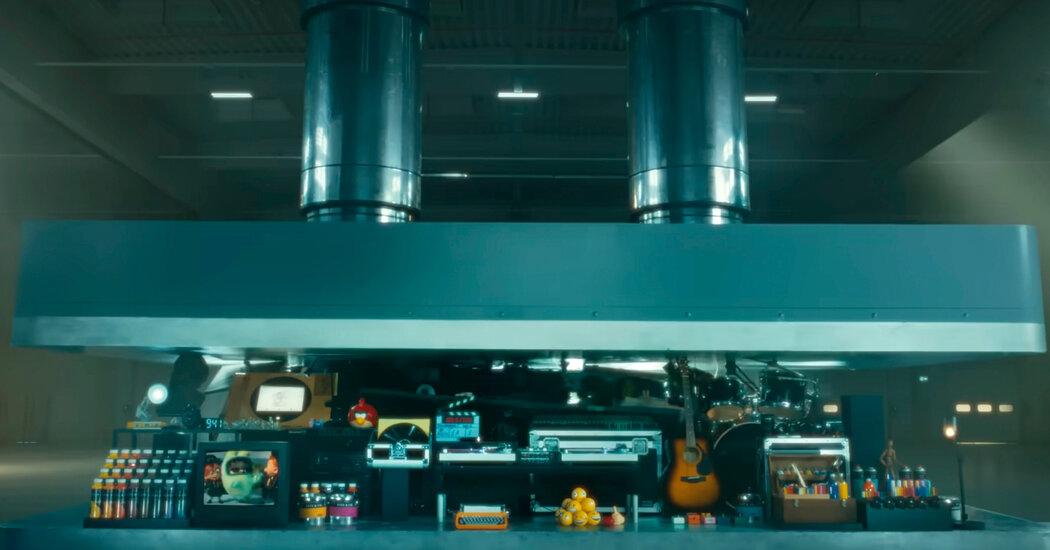People in the creative world widely panned a commercial showing a giant hydraulic press squishing objects ranging from paint cans to a piano.
Apple doesn’t make mistakes often and seldom apologizes, but on Thursday, its head of advertising said the company had erred in making a new iPad commercial that showed an industrial compressor flattening tools for art, music and creativity.
“Creativity is in our DNA at Apple, and it’s incredibly important to us to design products that empower creatives all over the world,” said Tor Myhren, the company’s vice president of marketing communications, in a statement provided to the publication AdAge. “Our goal is to always celebrate the myriad of ways users express themselves and bring their ideas to life through iPad. We missed the mark with this video, and we’re sorry.”
Mr. Myhren said Apple would no longer run the ad on TV.
The company had faced a barrage of criticism from designers, actors and artists who saw the ad as a metaphor for how Big Tech has cashed in on their work by crushing or co-opting the artistic tools that humanity has used for centuries.
They found the crushing of a trumpet, piano, paints and a sculpture particularly unnerving at a time when artists fear that generative artificial intelligence, which can write poetry and create movies, might take away their jobs.
Apple had intended the ad to send the opposite message, that its ultrathin iPad Pro could power an array of creative activities that previously required individual tools.
Apple introduced the iPad commercial, called “Crush,” on Tuesday after revealing an update to its tablet lineup. Tim Cook, Apple’s chief executive, said in a post on X that it was a thin, advanced and powerful device. “Just imagine all the things it’ll be used to create,” he wrote.
The reversal joins a series of rare apologies by Apple over the past 15 years, including one in 2012 from Mr. Cook for the shortcomings of its new Maps app. The app’s problems included incorrect directions and the wrong location for certain landmarks.
Mr. Cook’s apology for Maps broke with Apple’s previous policy of resisting pressure after mistakes. In 2010, Apple was criticized for releasing an iPhone that would drop calls. Steve Jobs, the company’s co-founder and Mr. Cook’s predecessor, went on the offensive, saying at a news conference that the problem was not the phone but the way some customers were holding it.
The company, which had spent decades encouraging filmmakers, musicians and artists to use its devices, heard an immediate outcry from that group.
